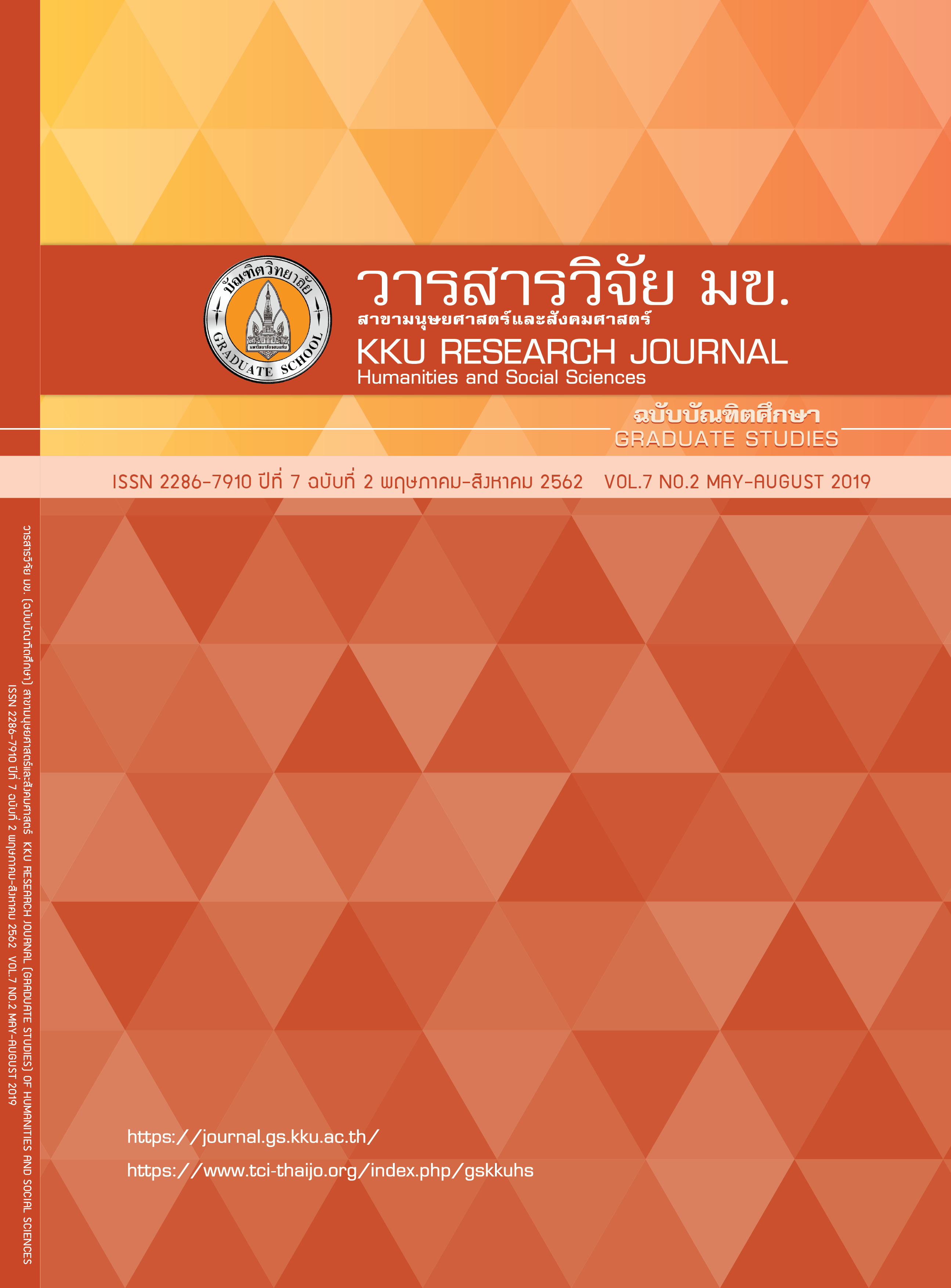การจัดการกุด: กรณีศึกษาบ้านกุดชุม อำเภอวารินชำราบ จังหวัดอุบลราชธานี
คำสำคัญ:
การจัดการ, กุด, การมีส่วนร่วมบทคัดย่อ
งานวิจัยนี้มีวัตถุประสงค์เพื่อศึกษาคุณภาพน้ำผิวดินของบึงหรือที่เรียกว่า “กุด” ในภาษาอีสาน การใช้ประโยชน์ของกุด และแนวทางในการใช้ประโยชน์ของกุดอย่างยั่งยืนผ่านกระบวนการมีส่วนร่วมของประชาชน ผลการศึกษาพบว่า คุณภาพน้ำอยู่ในเกณฑ์มาตรฐานน้ำผิวดินประเภทที่ 3 ของประเทศไทย การมีส่วนร่วมของชุมชนมีความเข้มแข็งอยู่ในระดับสูง ประชาชนในท้องถิ่นใช้น้ำจากหนองน้ำเพื่อการเกษตรและปลูกผัก การจัดการทรัพยากรน้ำของกุดเกิดขึ้นผ่านคณะกรรมการจัดการน้ำที่ได้รับแต่งตั้งให้ดูแลและประสานงานเกี่ยวกับการใช้น้ำจากหนองน้ำ
เอกสารอ้างอิง
A Case Study of the Maeyao Reservoir in Hangchat District of Lumpang Province.
MA Thesis. Chiangmai University. 2006.
2. Oliver Avramoski. The Role of Public Participation and Citizen Involvement
in Lake Basin Management. [serial online] 2004. Available from:
http://www.worldlakes.org
3. APHA, AWWA and WEF. Standard Methods for the Examination of Water
and Wastewater, 18th ed. American Public Health Association Washington,
D.C. pp.1-1 to 10-137.1985.
4. Pollution Control Department. Water Quality Standard,
Thailand. Bangkok. 2002.
5. Cohen, J.M. and N.T. Uphoff. Rural Development Participation:
Concepts and Measure for Project Design. New York: Comet University. 1977.
6. Chalard Chantarasombat. A Development of a Model of the
Community Knowledge Management. Mahasarakam:
Mahasarakam University. 2007.




